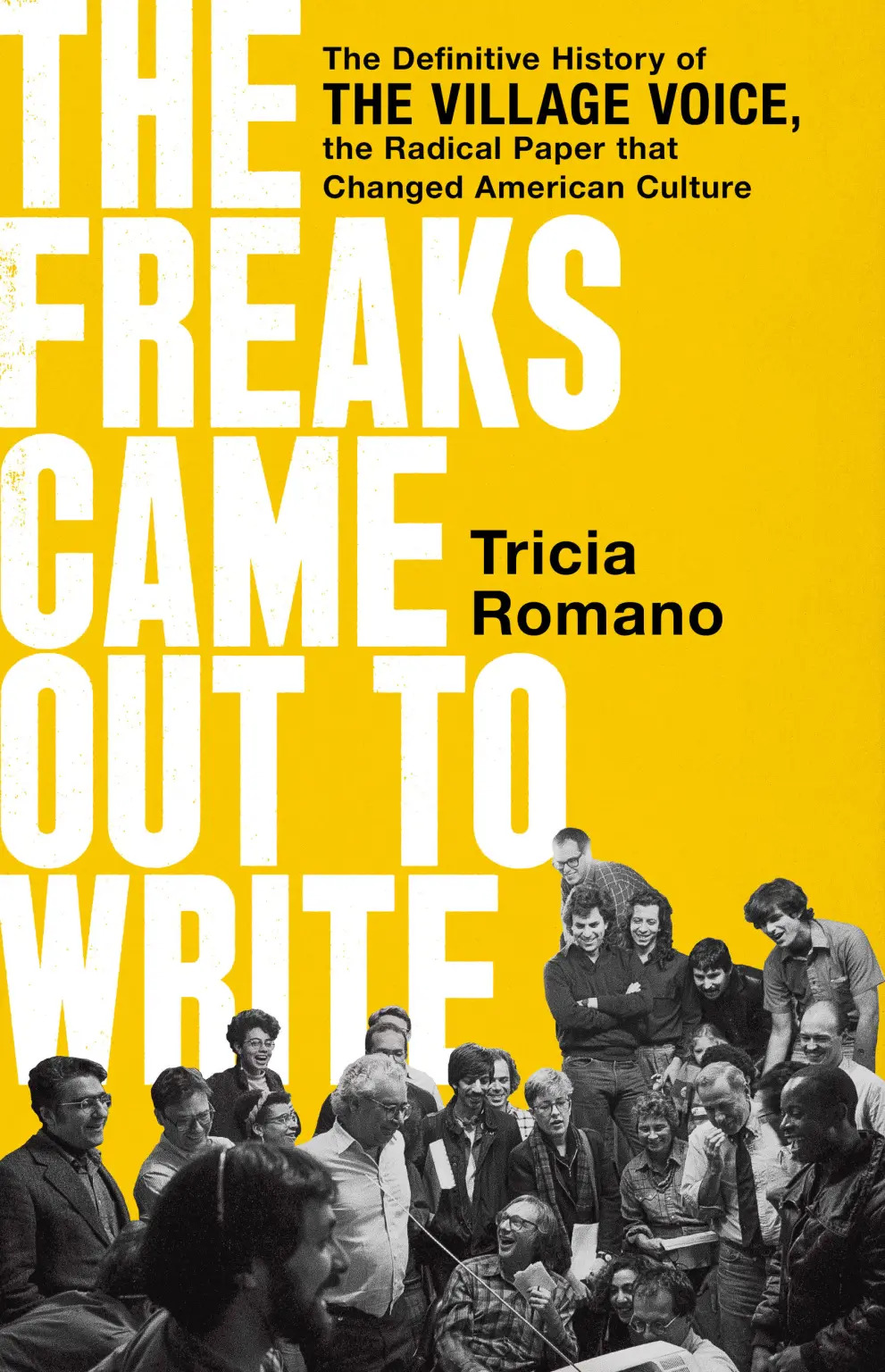TRICIA ROMANO MUST be exhausted. The Freaks Came Out to Write: The Definitive History of the Village Voice, the Radical Paper That Changed American Culture, her wonderful new oral history of the titular ur–alt weekly, reads like a dishy box score with every grievance, plaudit, and lament there in black and white. She keeps track of every back-and-forth rally, every brushback and brawl. Romano’s book is a vital, comprehensive piece of media scholarship about one of the most influential outlets of the last century. It’s also fun as hell to read.
The Voice was founded in 1955, when Dan Wolf, Ed Fancher, John Wilcock, and Norman Mailer decided that their downtown counterculture needed a dedicated newspaper. For the next seven decades, it would stand as one of the most influential news outlets in the United States, launching the careers of writers such as Colson Whitehead, Greg Tate, Lynn Yaeger, Hilton Als, and Vivian Gornick, all of whom Romano spoke with for Freaks. (Also interviewed: Bob Costas! Rupert Murdoch! Debbie Harry!)
Across 88 chapters spread over five sections, each covering roughly a decade of the paper’s life, Freaks feels less like a straightforward lecture on the journal’s history and more like being dropped into an especially good cocktail party where editors and writers are swapping stories and talking shit. In the book, there are as many paeans to the Voice’s bravery and nerve in leading the national discourse on topics like AIDS as there are grievances about those who chose the wrong side of history. These quotes are from adjacent pages:
KIT RACHLIS [executive editor, 1984–88]: […] The AIDS coverage was where people were truly trying to work out how do you respond emotionally, politically, medically to this horrific and mysterious health crisis?
MARK SCHOOFS [writer, 1993–2000]: It was right after [Voice editor] Robert Massa died I began to write. New York was getting money for HIV prevention, federal dollars, millions of dollars, and they were not spending it. We reported that, and the person who was in charge of that department lost her job.
Followed by:
KAREN DURBIN [editor, 1974–96]: Nat Hentoff’s first reaction to AIDS was not good.
RICHARD GOLDSTEIN [editor, 1966–2004]: Nat Hentoff had deep emotional problems […] I remember him saying that gay people were “too powerful."
NAT HENTOFF [writer, 1958–2009]: I almost got socked by a very large homosexual at the Voice for that.
That tension is what makes the book especially gripping. The collection of writers and editors cultivated at the Voice weren’t interested in objectivity—that was for schmucks and people at the Times. Voice writers wanted to tell the truth, whatever that meant.
